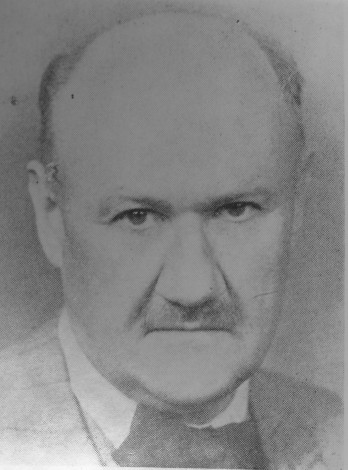Smal-Stotsky, Roman
Smal-Stotsky, Roman [Смаль-Стоцький, Роман; Smal’-Stoc’kyj] (also Smal-Stocki), b 8 January 1893 in Chernivtsi, d 27 April 1969 in Washington, DC. Scholar and political figure; member of the Shevchenko Scientific Society (NTSh) from 1934; son of Stepan Smal-Stotsky. He studied at Vienna, Leipzig, and Munich (PH D, 1914) universities. During the First World War he was an emissary of the Union for the Liberation of Ukraine (SVU) in Munich and worked as an SVU organizer and teacher among the Ukrainians from the Russian army held in POW camps in Germany. After the war he was a representative of the Western Ukrainian National Republic (1918–19) in Berlin and an adviser (1919–21) and extraordinary envoy and plenipotentiary minister (1921–3) of the Ukrainian National Republic in Berlin, a professor of comparative Slavic linguistics at the Ukrainian Free University in Prague (1923–6), a visiting professor (and unofficial UNR envoy) in London and Cambridge (1924–5), and a professor at Warsaw University (1926–39). In Warsaw he was also the UNR government-in-exile's deputy minister of foreign affairs, minister of culture, deputy premier (1926–44), and minister of foreign affairs; he was a member of the UNR delegation to the League of Nations, secretary of the Ukrainian Scientific Institute in Warsaw (1929–39) and editor of its Pratsi, a leading figure in the Promethean movement, and copublisher (with Ivan Ohiienko) of the series Studiï do ukraïns’koï hramatyky (Studies in Ukrainian Grammar, 7 vols, 1926–9). During the Second World War he lived under Gestapo house arrest in Prague. A postwar refugee in Germany, in 1947 he emigrated to the United States. Until 1965 he was a professor of East European history at Marquette University in Milwaukee, founding director of its Slavic Institute, and editor of the institute's publications. From 1951 he was president of the American NTSh and from 1955 head of its Supreme Council and also a member of the Political Council of the Ukrainian Congress Committee of America.
Smal-Stotsky produced studies on Ukrainian word formation (particularly of adjectives); on Romanianisms, Hungarianisms, and Germanisms in the Ukrainian language; on etymology; and on Soviet (Russian) language policy in Ukraine. His more important works are Abriss der ukrainischen Substantivbildung (1915), Narys slovotvoru prykmetnykiv ukraïns’koï movy (A Study of the Word Formation of Ukrainian Adjectives, 1925), Znachennia ukraïns’kykh prykmetnykiv (The Significance of Ukrainian Adjectives, 1926), Prymityvnyi slovotvir (Primitive Word Formation, 1929), Ukraïns’ka mova v Soviets’kii Ukraïni (The Ukrainian Language in Soviet Ukraine, 1936; 2nd expanded edn 1969), Die germanisch-deutschen Kultureinflüsse im Spiegel der ukrainischen Sprache (1942), The Origin of the Word ‘Rus’' (1949), The Nationality Problem of the Soviet Union and Russian Communist Imperialism (1952), The Captive Nations: Nationalism of the Non-Russian Nations in the Soviet Union (1960), and The History of Modern Bulgarian Literature (with C. Manning, 1960). In the United States he published political articles in American newspapers, the Ukrainian Weekly, and the Ukrainian Quarterly, and contributed the chapter on the history of the Ukrainian language to Ukraine: A Concise Encyclopaedia (vol 1, 1963). Articles about him and a select bibliography of his works can be found in ZNTSh (vol 177, 1963).
Oleksa Horbach
[This article originally appeared in the Encyclopedia of Ukraine, vol. 4 (1993).]
.jpg)
